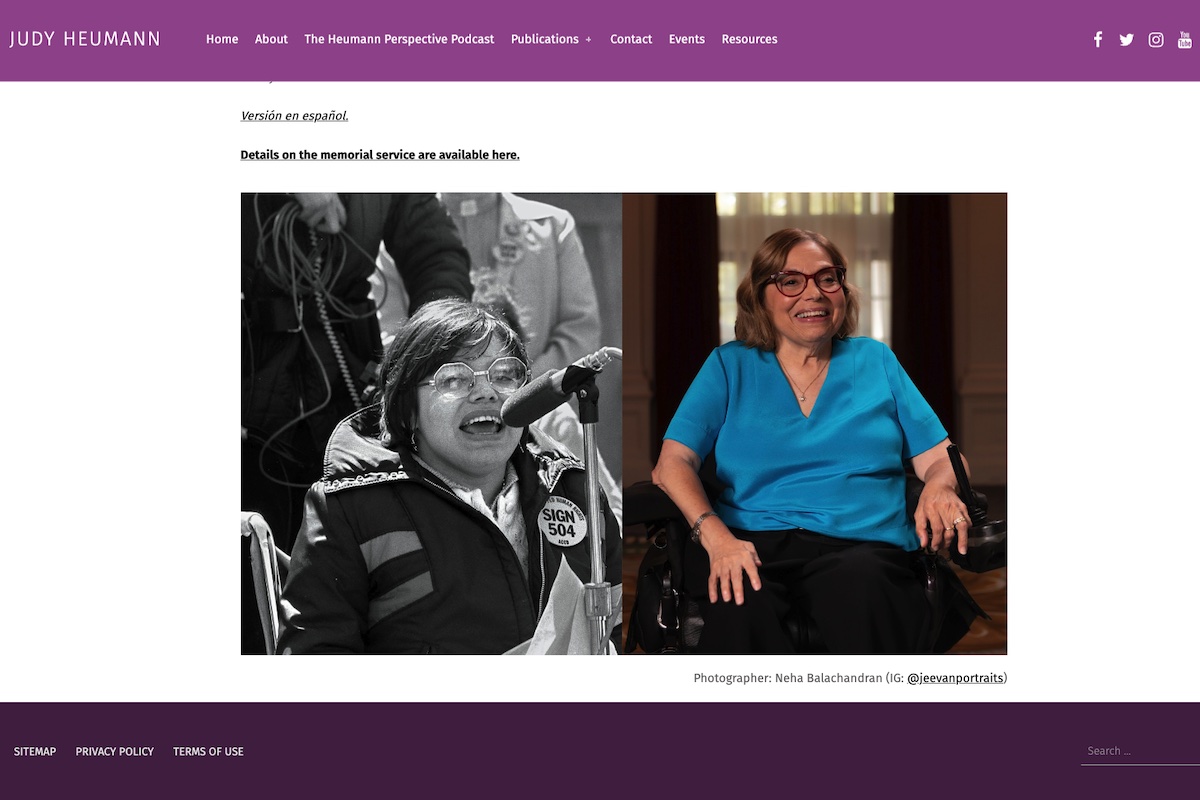March is Women’s History Month, and it heartbreakingly began with the death of Judy Heumann, “the mother of the disability movement.” She was a significant impetus for every disability law we rely on today: Section 504 of the Rehabilitation Act, the Individuals with Disabilities Education Act and the Americans with Disabilities Act. She worked tirelessly inside and outside the system to ensure the rights of every person with a disability. She had an extraordinary passion for the needs of children.
“Judy Heumann’s impact cannot be overstated – every hard-won victory for disability rights since the 1960s stems directly from her leadership and advocacy,” said HHS Secretary Xavier Becerra. “Because of her, people with disabilities are guaranteed equal access and opportunities to go to school, build careers, and live the lives they want to live. Judy shaped the world we live in today, and we all are better for it.
You can learn more about her remarkable life in these two tributes:
- HHS Mourns the Loss of Disability Rights Leader Judy Heumann
- The World Mourns the Passing of Judy Heumann, Disability Rights Activist
You can learn even more about who she was and what she stood for by reading her own words:
- Oscars doc ‘Crip Camp’ is a victory for disability rights, win or lose
- We’re 20 Percent of America, and We’re Still Invisible
The quotes below struck us, especially as the state of Mississippi grapples with enforcement of the Americans with Disabilities Act (ADA) and not discriminating against people with mental illness.
“Yet just as many of the injustices that the Civil Rights Act aimed to eliminate are still very much with us, and still being resisted, the full promise of the Americans With Disabilities Act has yet to be realized. We are not yet where we need to be.”
“People with disabilities are the largest minority group in the United States, but for the most part, we remain invisible. We represent about 20 percent of the population. We live in every state and in every community; we are members of all social and racial and ethnic classes; we are present in most families. But we are still often subject to the same unthinking responses to emerging problems that ignore the needs, issues or concerns of disabled persons. In most cases, we remain an afterthought.”
“That invisibility persists at least partly because so few disabled people are in leadership positions in government, business and education.”
“Historically, we have been hidden away. Disabled people can make nondisabled people feel vulnerable. We are a reminder of those fellow humans they may have avoided or shunned in the past, and of the fact that so many of us acquire disabilities as we get older.”
“Certainly, part of the solution will require new laws and better enforcement of the existing ones.”
“Our laws are important and they have formed the bedrock for our future. But the truth is, the A.D.A. was never intended to be the sole remedy for all the oppression and injustice disabled people face. It is just one tool. Our goal is to enact a broader, more nuanced approach, extending beyond the legal abolishment of discriminatory practices.”
“When President Bush declared on the White House lawn 30 years ago, ‘Let the shameful walls of exclusion finally come tumbling down,’ he was calling on us as a nation to recognize our responsibility to end discrimination. If the moral arc of the universe is to continue to bend toward justice, we must embrace disability as a critical part of diversity, and truly welcome one another, in both letter and spirit, as equal members of society.”
[photo credit: screen capture of judithheumann.com]

